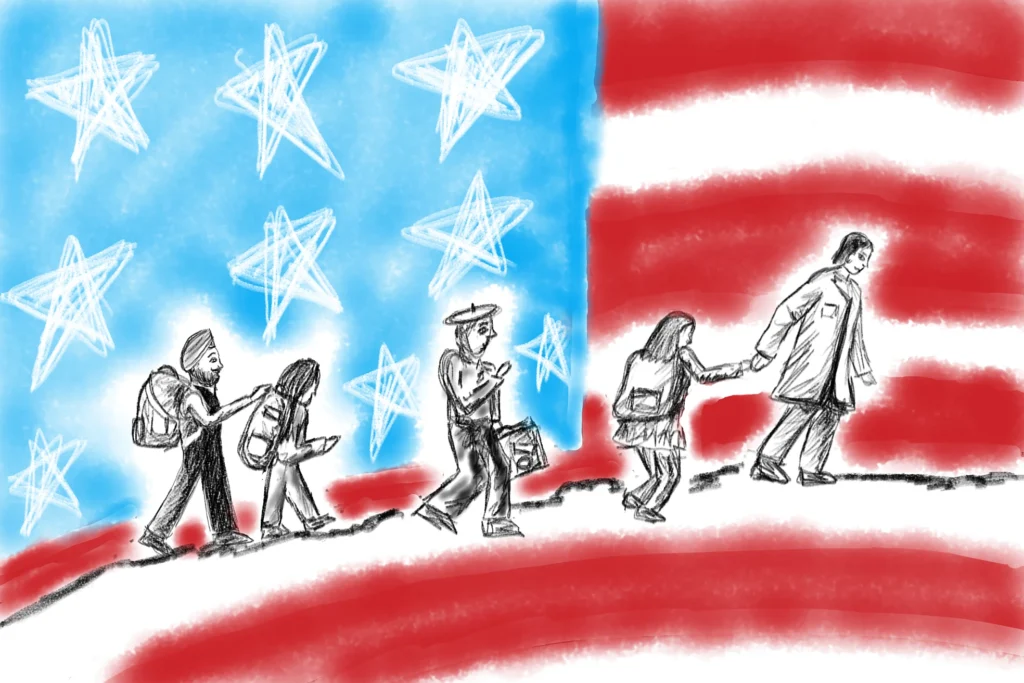In recent years, the United States of America’s policy on immigration has been a topic of heated debate and intense scrutiny. With a constant stream of migrants seeking better opportunities, security, and refuge within its borders, the U.S. has grappled with crafting a comprehensive and effective immigration policy. This essay aims to critically evaluate the country’s current approach to immigration, exploring its strengths, weaknesses, and potential areas for improvement.
The Humanitarian Perspective
From a humanitarian standpoint, the U.S. has a moral obligation to provide a safe haven for those fleeing violence, persecution, and poverty in their home countries. Its current policies, such as the asylum system, highlight its commitment to protecting human rights. However, concerns arise regarding the prolonged detention of asylum seekers, the backlogs in processing applications, and the lack of sufficient resources to address the influx of migrants.
National Security
Considering national security, the U.S. faces legitimate concerns in safeguarding its borders and protecting its citizens. The current policy attempts to strike a balance between maintaining security and accommodating legitimate immigration needs. However, critics argue that the focus on border enforcement often contributes to a narrative that paints migrants as potential threats, leading to discrimination and the erosion of civil liberties.
Economic Impact
Immigrants have long played a significant role in shaping the U.S. economy. They contribute to innovation, fill labor market gaps, and create jobs. However, the current policy is criticized for its lack of clarity and inconsistency, making it difficult for businesses and immigrants alike to navigate the system. An overhaul of the policy could provide a more streamlined process that better aligns with economic needs while ensuring fair treatment for all.
Family Reunification and Diversity
One of the pillars of the U.S. immigration system is family reunification, which aims to preserve the unity of families. This policy has allowed countless families to be reunited and has fostered social and cultural diversity within the country. However, the current policy faces criticism due to long waiting times for family-based visas, resulting in separations and strains on familial bonds. Enhancing efficiency in processing applications and reducing the visa backlog would address these concerns.
Undocumented Immigration
Undocumented immigration remains a contentious issue within the U.S. The current policy, which includes deportation and targeted enforcement, seeks to address this issue. However, critics argue that a more comprehensive approach, including a path to legal status, would be beneficial. This approach would allow undocumented immigrants to come out of the shadows, contribute fully to society, and address the underground economy.
Integration and Assimilation
Successful immigration policies should prioritize integration and the assimilation of immigrants into society. Adequate support in the form of language training, access to education, healthcare, and employment opportunities is crucial for immigrants to fully participate and contribute to their new communities. Strengthening integration programs, ensuring equal opportunities, and combating discrimination are areas that require attention within the current policy.
Balanced Approach
The USA’s current policy on immigration is a complex issue that requires a balanced approach. While efforts have been made to address humanitarian concerns, national security, and economic impacts, there are areas that demand attention and improvement. Enhancing efficiency in processing applications, addressing visa backlogs, providing clearer guidelines, and promoting integration are steps that could lead to a more effective and inclusive immigration policy. It is essential to find common ground that respects human rights, fosters economic growth, and protects the nation’s security. By striving for a comprehensive and compassionate policy, the United States can continue to be a beacon of hope and opportunity for those seeking a better life within its borders.
